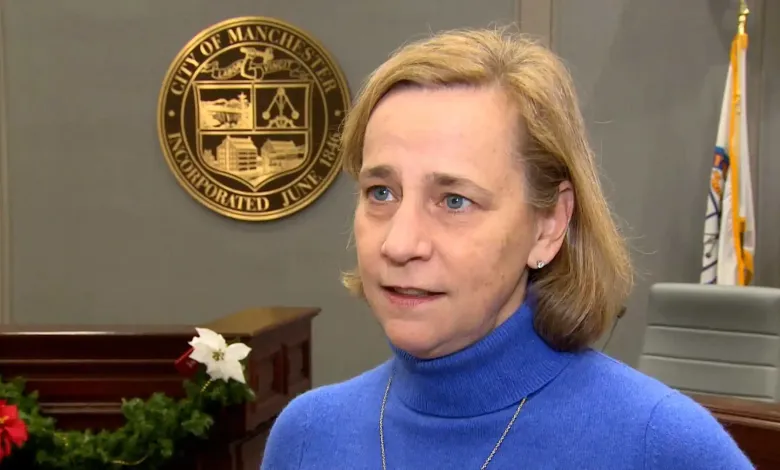Craig: Send National Guard to Manchester to Battle Homelessness

After years of failed policy initiatives to address homelessness, Manchester Mayor Joyce Craig and a group of her fellow Democrats want Gov. Chris Sununu to send in the troops.
Literally.
Craig joined seven of her fellow Democratic mayors in a letter asking Sununu to call up the National Guard.
The mayors, including Craig, Nashua Mayor Jim Donchess, Berlin Mayor Paul Grenier, Franklin Mayor Jo Brown, Dover Mayor Bob Carrier, Somersworth Mayor Dana Hilliard, Claremont Mayor Dale Girard, and Laconia Mayor Andrew Hosmer, blamed the state for the failures in their communities.
“The State of New Hampshire’s systems of care for individuals experiencing or at risk of homelessness are not meeting the needs of communities across the state and are contributing to a statewide homelessness crisis,” the mayors wrote. “Inadequate state services for individuals experiencing substance use disorder, mental illness, chronic health conditions, histories of trauma, and incarceration are all substantial factors contributing to homelessness in New Hampshire.”
In addition to requests for more state-funded emergency beds, the mayors want the National Guard to help staff emergency shelters. They also want state-owned property in Manchester opened up to house the homeless, also with the help of the Guard.
Sununu rejected claims the state isn’t spending enough to address homelessness. And he said mayors like Craig are failing to use federal resources or effectively manage the problem.
“The tone and misleading content contained in the mayors’ letter is disappointing considering the team approach that is so important on an issue as critical as this. The state has made unprecedented investments to address this issue and continues to identify additional pathways working through the Continuum of Care model,” Sununu said in a statement.
Sununu also said Manchester left a large chunk of its $43 million American Rescue Act funding untouched, money that could have been used for homeless services. At the same time, the city has spent millions on other, less life or death, priorities.
“Meanwhile, the City of Manchester has seemingly used very little of their $43 million from the American Rescue Plan funds to directly address homelessness and, as of Q3 of 2022 (according to their public facing website), they had only expended 22 percent of their funds,” Sununu said. “The unprecedented request to call in the National Guard when federal funding hasn’t been spent by many of the municipalities who signed this letter is impossible. For example, $2 million of American Rescue Plan funding received by Manchester has been dedicated to the city’s branding strategy.”
The state currently supports a Continuum of Care program to allow individual communities to address the homeless crisis while also investing more than $120 million into 42 programs, including housing, emergency assistance for families, and healthcare access for people in crisis.
“Emergency shelters across the state serve more than 700 people (individuals and families) on any given night in New Hampshire,” according to the New Hampshire Department of Health and Human Services.
The deaths of a homeless man and a homeless woman in separate incidents in Manchester during frigid temperatures around the Christmas weekend have increased scrutiny of Craig’s leadership on the issue. Now a national spotlight has been turned on the Queen City’s homelessness issue with the news of the birth and abandonment of a baby in a homeless camp around midnight on December 26.
The mother, Alexandra Eckersley, 26, is the adopted daughter of Major League Baseball Hall of Famer and retired Red Sox broadcaster Dennis Eckersley. She was subsequently arrested for allegedly abandoning the newborn in a tent for more than an hour. The newborn boy was taken to Dartmouth-Hitchcock Medical Center in Lebanon.
Craig’s continued struggle to address homelessness has become a political embarrassment for the mayor, who is widely believed to have an eye on the governor’s office. The city hired Schonna Green as its first-ever director of homeless initiatives in 2021. But she abruptly quit in September.
Ward 3 Alderman Pat Long told Manchester InkLink that Green was set up to fail in her post.
“She was a director of homelessness with no staff, so that was set up to fail from the start. It would be like telling (Police) Chief (Allen) Aldenberg you have no more officers and, oh, keep the city safe,” Long said. “Schonna had a lot of ideas that were stifled someway, somehow – and that was frustrating to her. She called me three weeks ago and said she felt like people were working against her and that they didn’t want her here. I don’t know about that because I’m not in her shoes every day.
“Homelessness is a major initiative in the city of Manchester and in my opinion, you can’t address it with a one-person department,” Long added.
In an interview with WMUR, Craig conceded the homeless problem has gotten worse on her watch.
“Homelessness has been an issue for decades,” Craig said. “Manchester runs health care for the homeless. We’ve had that contract for 40 years. But I would say right now, we are seeing more people living outside than we have before.”




